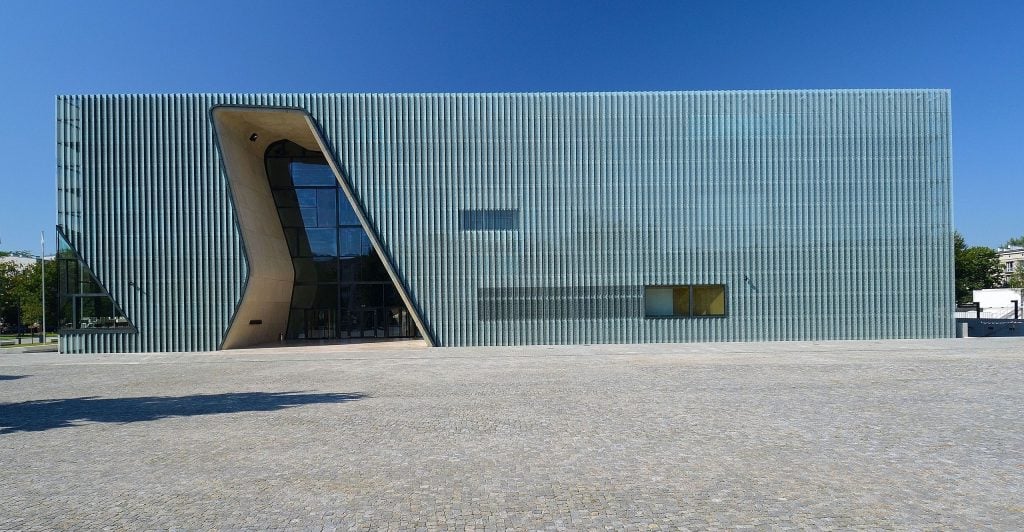Law & Politics
Jewish Community in Warsaw Sues Polish Museum Over Alleged Copyright Violation
The museum took Yiddish translations without proper credit, the community claims.

The museum took Yiddish translations without proper credit, the community claims.

Hili Perlson

The Jewish Community of Warsaw has launched a lawsuit against the Polin Museum of the History of Polish Jews alleging copyright violations on translations of historical Yiddish texts, the JTA reports.
The museum has been requested to remove text excerpts from its website, pay a $7,500 compensation, and issue an official apology to the Jewish Community of Warsaw.
The suit involves some four Yiddish-language articles translated into Polish by Anna Cialowicz and Aleksandra Geller that were published on the community’s website. The complaint claims that the museum posted one text to its own website and used fragments from three articles in videos on its YouTube channel.
According to JTA, Cialowicz already has another ongoing lawsuit against the museum, launched in October and involving further Yiddish translations which she claims were used without credit in a book, published by the Polin Museum and the publisher Agora SA, titled “Walking in Jewish Warsaw.” The hearing of this case proceeds in January 2017.
The lawsuits point to the tensions between the Warsaw Jewish community and the Polin Museum (“Polin” is Hebrew for Poland). Since its opening in 2013 in an impressive glass building on the site of the former Warsaw Ghetto, the museum has attracted visitors from all over the world, Israel in particular, with many looking for information about their own family history there.
Jakub Wozniak, head of the communications department of the Polin Museum, says that the museum supports the activities of the Jewish communities. “We have very good relations and maintain regular contact with representatives of the Jewish community in Poland,” Wozniak told JTA.
However, Anna Chipczynska, president of the Jewish Community of Warsaw, claims that the museum overshadows the Jewish Community’s efforts in presenting historical events. “There is a great risk that in the future, focusing on this educational institution as a Polish visiting card to the world will lead to the collapse of [Jewish] communities or to an international scandal,” she is quoted as saying in an interview from 2015.
The representation and discussion around the Holocaust and Poland’s involvement in the killing of its Jewish community has been a central issue for the current Polish government, led by the far-right, nationalist, Euro-skeptic “Law and Justice” Party (PiS).
This past August, the Polish cabinet passed legislation that would outlaw the use of the phrase “Polish death camps,” making it punishable with up to three years in prison. The more accurate term, and the only one that would be legally acceptable in Poland is “Nazi German death camps.”
Historians and academics have previously warned that this language could help to create a revisionist Polish history, with a law designed to whitewash the story of wartime Poland. In an article published this past April, the Economist called instances in which the government interfered with historical portrayals “alarming.”
In July, Law and Justice’s education minister, Anna Zalewska, denied the well-documented participation of Polish citizens in Poland’s two most infamous pogroms against Jews. And earlier this year, in February, president Andrzej Duda announced his intention to revoke national honors awarded to Jan Tomasz Gross, a Polish historian who researched Polish complicity in the Holocaust, claiming Poles killed more Jews than Germans during the war.